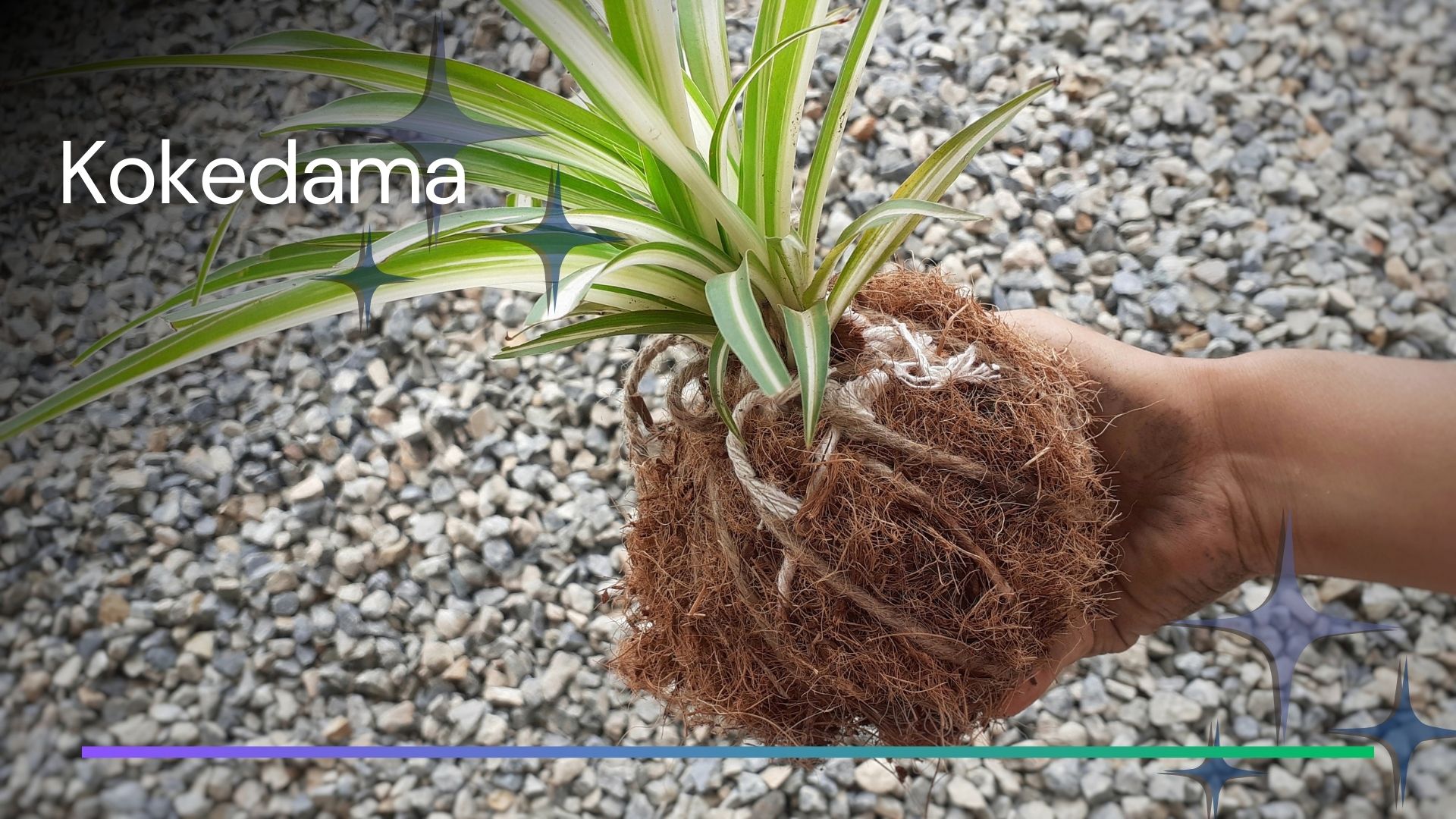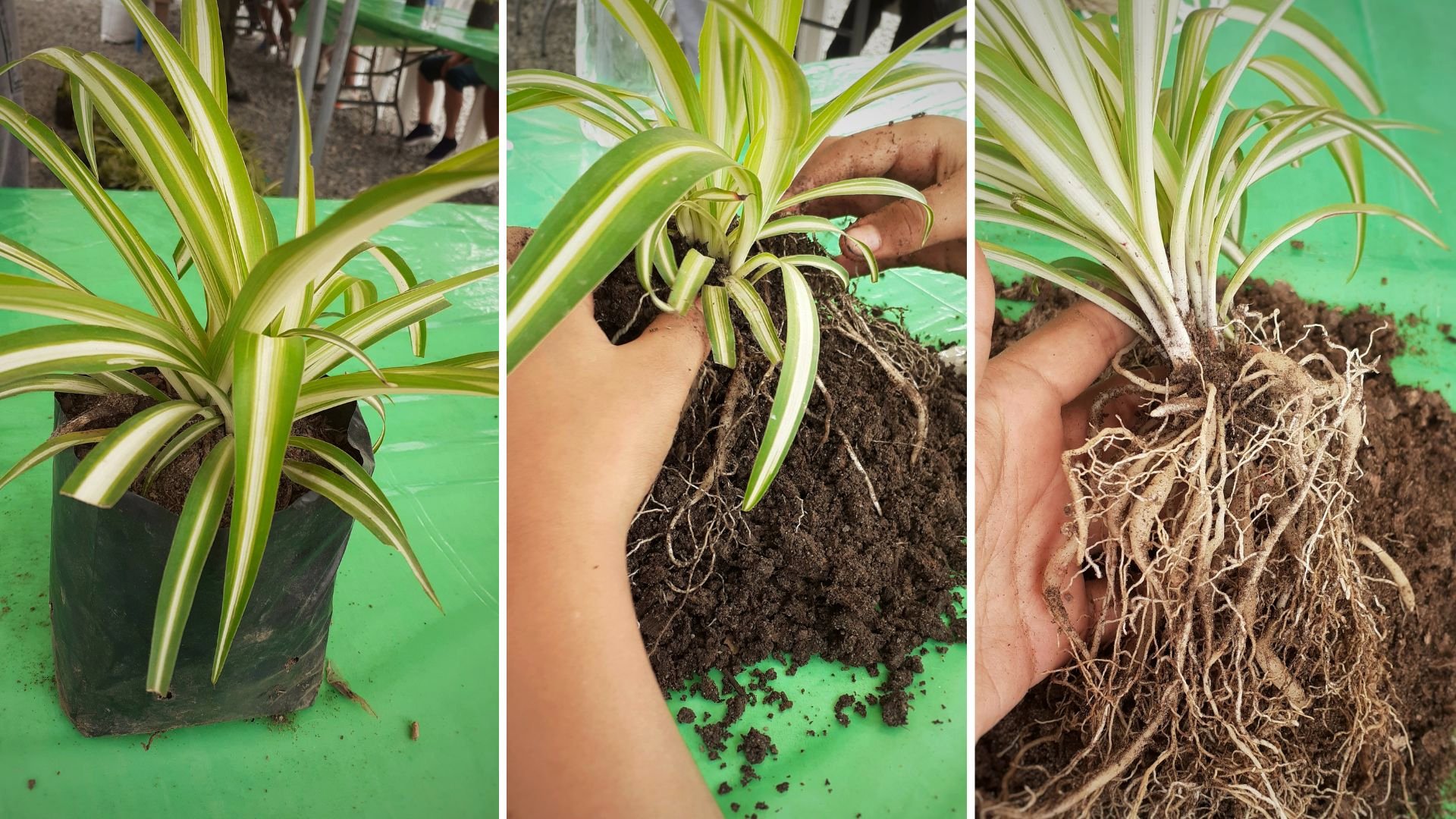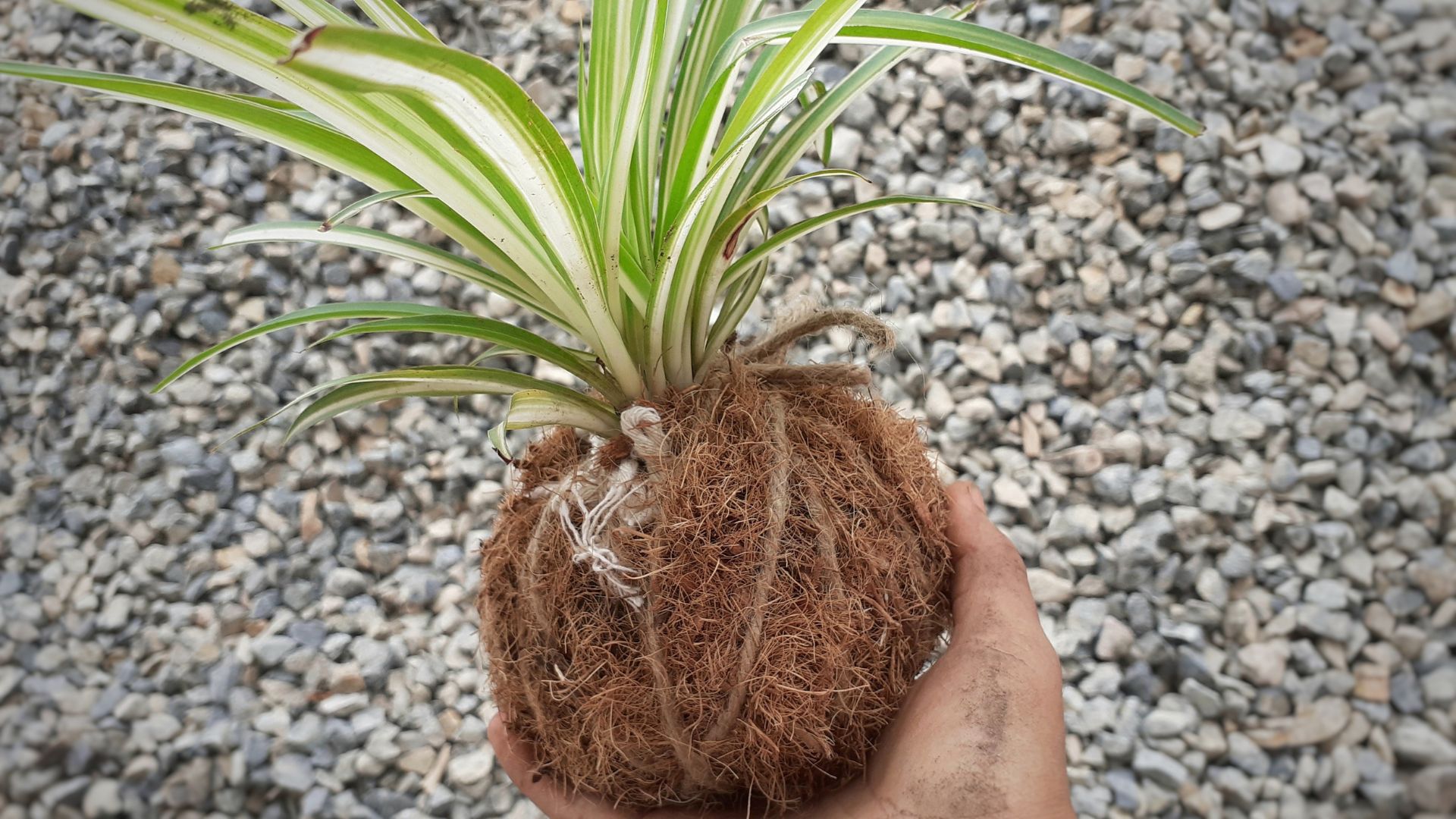
Hi, I hope you are feeling great!
This weekend I attended a Kokedama Workshop, organised by the Municipality of San Juan de Lurigancho (Lima, Peru). The ticket to attend the workshop was a plastic bottle, yes we are encouraging recycling.
Before, the Kokedama or Bonsai of the poor, is a Japanese technique which fuses tradition and modernity. It consists of replacing the traditional pot with a ball of moss, inside which are the necessary nutrients for the plant.

The materials
- Plants of Bride ribbon (Chlorophytum comosum) and/or Jade (Crassula ovata)
- substrate (potting soil, moss, sand and earthworms)
- distilled water
- macramé yarn and jute
- coconut fibre

Take the plant out of its bag, then lightly remove the soil with your hands to reduce damage to the roots. Once this is done, the plant is ready to incorporate its new substrate (the pellet). Leave it on standby while we prepare the ball.

Wet the substrate and knead it into a ball. Before inserting the plant, cut off some of its roots. Make a hole in the centre of the ball and insert the plant.

Cover the ball with coconut fibre. And fasten it with white macramé yarn. We continue securing the ball by wrapping it with jute, to reinforce the spherical shape of the Kokedama. In this part I do recommend using strength, so that it lasts longer.


Maintenance of your Kokedama.
- Soak your Kokedama for 15 minutes twice a week.
- Avoid exposure to direct light.

¡Hola, esto es Waralwa!
Este fin de semana asistí a un Taller de Kokedama, organizado por la Municipalidad de San Juan de Lurigancho (Lima, Perú). La entrada para asistir al taller fue una botella de plástico, sí estamos fomentando el reciclaje.
Antes, las Kokedama o Bonsái de los pobres, es una técnica Japonesa la cual fusiona tradición y modernidad. Consiste en sustituir a la maceta tradicional por una bola de musgo, en cuyo interior se encuentran los nutrientes necesarios para la planta.

Los materiales fueron
- Plantines de Cinta de novia (Chlorophytum comosum) y/o Jade (Crassula ovata)
- sustrato (tierra de chacra, musgo, arena y lombrices)
- agua destilada
- hilo macramé y yute
- fibra de coco

Paso 1
Sacar la planta de su bolcita, luego retirarle la tierra con las manos de manera suave reduciendo el daño de las raíces. Una vez hecho esto, la planta está lista para incorporarse su nuevo sustrato (la bolita). La dejamos en espera mientras preparámos la bolita.

Mojamos el sustrato y amasamos formando una bolita. Antes de introducir la planta, le cortamos algunas de sus raíces. Hacemos un huequito en el centro de la bolita e introducimos la planta.

Cubrimos la bolita con fibra de coco. Y lo sujetamos con hilo macramé blanco. Seguimos asegurando la bolita envolviendolo con yute, para reforzar la forma esférica de la Kokedama. En esta parte sí recomiendo que se utilice fuerza, para que dure más tiempo.


Mantenimiento de tú Kokedama
- Remojar por 15 minutos tú Kokedama 2 veces a la semana
- Evitar la exposición a luz directa.
... Jikisiñkama!
... ¡Nos vemos!
... See you later!.
Hermoso gracias por compartir este proceso y por fomentar el reciclaje , cuando tenga concha de coco voy a hacer unos kokedamas guiandome con tu post.
Hola Vicky. Sí, estaría chévre. El taller estuvo divertido porque asistieron niños, es decir esta actividad también es para pasarla un rato con los pequeños de la casa. De seguro te quedará muy bien.
Very cool!
win tips and upvotes from the Hive Garden. Don't forget to engage with other Hive gardeners!The #gardenjournal challenge lasts for around 10 days from the 1st of every month - you have the chance to
Thank you so much!.